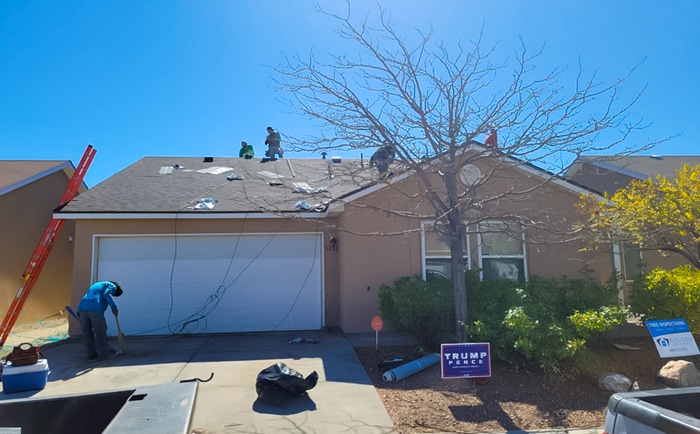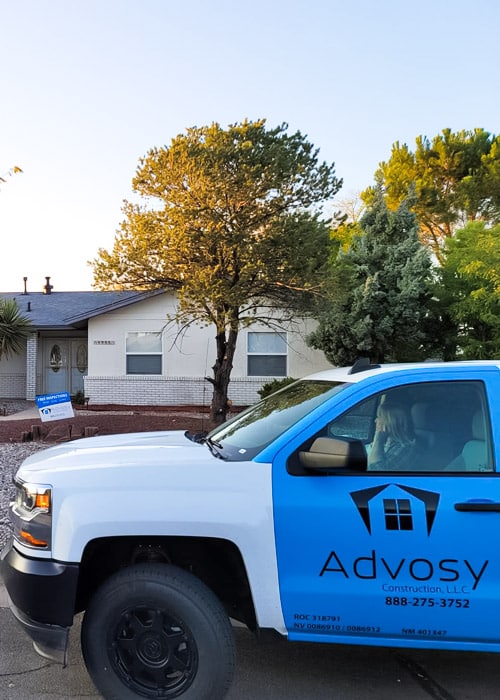Replacing a roof is an important undertaking that requires careful planning and research. Homeowners in Tucson, AZ must take into consideration the local regulations regarding permits when considering replacing their roofs. This article will provide clarity on the permit requirements for replacing a roof in Tucson, AZ.
When considering replacing the roof of any dwelling structure in Tucson, AZ it is necessary to understand if a permit is required or not. Generally speaking, there are two sets of rules governing construction projects such as this one: those set by state agencies and those established by local government bodies like municipalities. The type and scope of project also play an important role when determining whether a permit is needed or not.
This article will analyze the applicable regulations related to obtaining permits for replacement roofing jobs in Tucson, AZ. It will explain what types of projects require permits from both state and local entities as well as how to apply for them so homeowners can be sure they stay compliant with all relevant laws.
Overview Of Roof Replacement In Tucson
Tucson, Arizona is a place of diverse and beautiful landscapes. With its warm climate and sunny skies, the city receives an average of 310 days of sunshine each year. As such, roof replacement in Tucson can be necessary for ensuring that one’s home remains safe from water damage due to leaks or other damage caused by exposure to the elements. The process of replacing a roof in Tucson involves understanding local regulations, acquiring permits when required, selecting materials appropriate for the area’s climate and environment, hiring experienced professionals who are qualified in proper installation techniques, determining project costs based on labor and material expenses, as well as evaluating any potential tax incentives offered by local governments. It is important to work with certified contractors who have experience and knowledge about working within applicable building codes so that all aspects of the job meet safety standards and legal requirements.
Regulations And Guidelines For Roof Replacement
In Tucson, Arizona, a permit is required for roof replacement projects. Building permits can be obtained from the City of Tucson Development Services Department and must comply with state regulations. Permits are necessary to ensure that all safety standards are met, as well as other requirements such as fire retardant materials, ventilation systems, insulation levels, drainage methods and structural strength. Additionally, any changes in exterior walls or buildings need to be approved according to city building codes before construction begins.
The cost of the permit depends on the scope of work being done and may also include inspection fees. It is important to note that some municipalities have unique zoning ordinances that might affect a specific project’s feasibility; thus it is recommended to check local laws prior to starting any project in order to understand what restrictions apply. Furthermore, obtaining proper insurance coverage related to the project is essential when hiring contractors since this will protect both parties involved should an accident occur during construction.
Types Of Permits Required For Roof Replacement
In Tucson, Arizona, a permit is required when replacing a roof. The City of Tucson’s Building and Safety Division must approve any new construction or remodeling projects that involve structural changes to an existing building. This includes replacement roofs. When applying for a permit, homeowners should provide the following information: site plans with measurements; materials list including colors; proof of property ownership; and energy efficiency certification documentation if necessary.
The type of permit needed depends on the scope of work being done as well as the size and location of the structure. If there are no substantial structural changes involved in the project, then a Minor Alteration Permit may be sufficient. However, if major structural elements such as walls or columns will be altered during installation, then a Major Renovation Permit would need to be obtained. Additionally, Homeowners Associations (HOAs) may require additional permits depending on their regulations and restrictions. It is important to check local ordinances before beginning any home improvement project like replacing a roof in order to ensure compliance with all applicable laws and rules.
Where To Obtain The Right Permit
In Tucson, Arizona, a permit is required for roof replacement. The applicant must go to the City of Tucson Development Services Department to obtain it. It is important to note that permits are not always needed if certain criteria are met, such as if no structural changes will be made when replacing the roof or if asphalt shingles are being used in most cases. Depending on the type of roof material chosen and other factors, additional approvals may also be necessary from various departments within the city before any work can begin.
The applicant should contact their local building inspector’s office prior to applying for the permit to ensure they have all the documents and information necessary for approval. They should also check with their neighborhood association or homeowner’s association (if applicable) prior to starting any project on their property. This could save time by avoiding potential violations later on down the line due to specific restrictions set in place by these organizations. Ultimately, having all necessary paperwork completed and approved beforehand will help expedite the process and make sure everything goes smoothly during the installation of a new roof.
Cost Of A Permit For Roof Replacement
In Tucson, Arizona, a permit is required to replace an existing roof. In order to obtain the necessary permit from the City of Tucson Planning and Development Services Department, all applicable fees must be paid in full before approval for the project can be granted. The cost of obtaining a permit to replace a roof generally includes two components: plan review fee and building permit fee. The plan review fee covers the costs associated with reviewing plans submitted by contractors or homeowners while the building permit fee reflects the actual cost of issuing a permit. Depending on the size of the replacement project, these fees may vary significantly but typically range between $500-800. Additionally, any other special requirements such as engineering reports will also incur additional charges.

Benefits Of Obtaining A Permit For Roof Replacement
Obtaining a permit for roof replacement in Tucson, AZ is an important step that should not be overlooked. A valid permit ensures the contractor and homeowner are following building codes set forth by the city. It also allows inspectors to check on materials used and construction methods during each phase of the project. This helps guarantee a safe, durable, and long-lasting roof.
In addition, permits can save homeowners money in the long run by protecting them from potential liabilities caused by unsafe installations or code violations. Without one, they may find themselves facing costly fines and penalties if their home fails to meet local regulations. Furthermore, obtaining a permit will ensure that any future repairs or renovations remain up to code as well. Ultimately, procuring a valid permit before beginning any roofing work is essential for safety purposes and financial protection.
Penalties For Not Obtaining A Permit For Roof Replacement
In Tucson, AZ it is necessary to obtain a permit for roof replacement in order to comply with regulations. Those that fail to do so face various penalties. Fines and other monetary punishments are common outcomes of not obtaining a permit before replacing the roof. Depending on the jurisdiction, these fines can range from hundreds of dollars up to thousands. In some cases ongoing payments may be required until the permit is acquired or the work is corrected according to regulations.
Additionally, there is also potential for legal repercussions if a person chooses not to follow building codes related to roofing projects. A court could require correction of any violations as well as payment of additional fines and fees associated with non-compliance and enforcement. This can present significant costs including time spent dealing with the issue and hiring professionals for corrections or removal/replacement of materials if needed.



